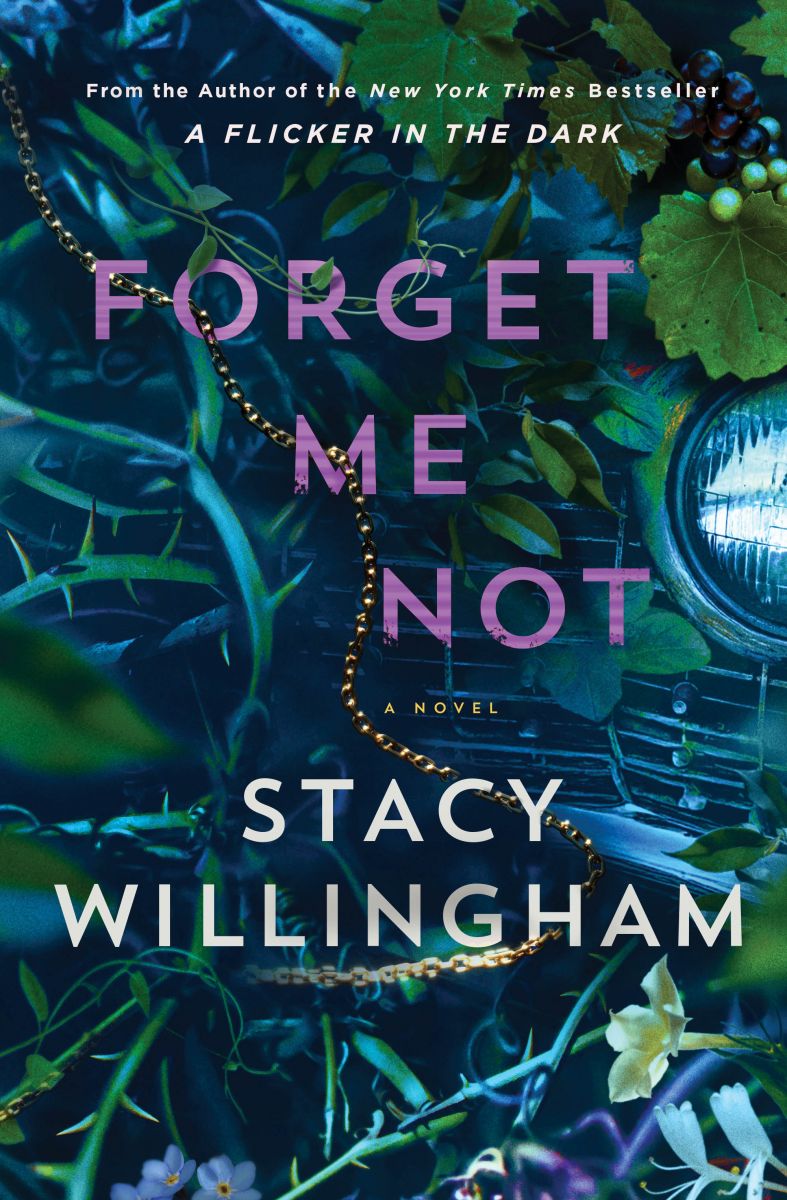
I have a suggestion for the Outer Banks crew: hire Charleston-based author Stacy Willingham as your script writer. As with the first season of Netflix’s hit treasure-hunting saga, in which the Pogues were racing around what we all knew was Rockville and Wadmalaw (though the show is supposedly set on North Carolina’s Outer Banks), Willingham sets her latest novel in the rural outback of the Lowcountry sea islands. The difference: Willingham’s setting and story line ring true down to the bug spray, the pluff muddy marsh smells, and “the cloud of cicadas screaming in the trees,” and her pages turn with riveting suspense. Forget Me Not is populated with fully developed characters that feel familiar, in a location—a muscadine farm on Ladmalaw Island—that (minus the substituted “L”) is authentically Lowcountry, ie oppressively humid, buggy, and dripping with moss, mysterious characters, and family intrigue.
We meet Claire Campbell at a low point for the thirtysomething New York journalist and South Carolina native who has recently left her crime beat at The New York Journal. Now freelancing and flailing, she gets beckoned home to small town Draper, South Carolina, to help her mother who’s had a fall. It’s her first time back in 15 years; Claire has avoided home and her divorced parents since her adored 18-year-old older sister, Natalie, disappeared 22 years earlier. “Presumed dead is the technical term, but at this point it’s a trivial change,” Claire thinks to herself. Though her body was never found, Natalie’s alleged older boyfriend is serving a life sentence for the crime, and everyone else in the family is struggling to move on. It’s not working out too well—nor does Claire’s return home.
After only one tense night at her mom’s, Claire drives out to nearby Galloway Farm, a muscadine vineyard where Natalie worked the summer prior to her death. Claire accepts a job, complete with housing in a cabin overlooking the marsh, but what looks like an ideal place to get back on her feet turns into anything but. After discovering a hidden diary, she taps into her journalistic instincts and begins unravelling sinister layers. The diary hints at other missing girls and unsolved crimes, identities of her farm coworkers who aren’t who they seem, and revelations about her family history that are tangled like wild, thorny vines running through it. This is Willingham’s superpower: upgrading the predictable, true crime, Gone Girl genre with psychological depth and hauntingly good prose.
After her earlier books, including the New York Times best-selling A Flicker in the Dark, All the Dangerous Things, and Only If You’re Lucky, readers know Willingham can deliver a fast-paced, quickened-pulse read. This time, she’s savvier, more mature, and more assured. Pour yourself some muscadine wine, and dig in. You won’t soon forget it.
—Stephanie Hunt
